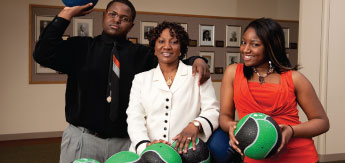Breathe Free for Kids
Breathe Free for Kids was a Harvard School of Public Health community-based participatory research project working in Boston, Lawrence and Worcester. The Boston Alliance for Community Health (BACH) was one of its community partners. CBPR sought to improve health outcomes and address health disparities by equitably involving both participants and researchers.
The major goal of Breathe Free for Kids was to protect children from second-hand smoke exposure by working with families with children under age 6 that lived where smoking occurred in or around the home. The research was designed to determine whether motivational interviewing is an effective strategy to lowering early childhood exposure to secondhand smoke as compared with the ‘usual best practices’ approach to second-hand smoke education.
Motivational interviewing is a non-confrontational way of communicating with individuals that incorporates reflective listening and open-ended questions. It helps participants recognize their own desires for change, and encourages them to develop strategies as a way of meeting their goals. The motivational interviewer recognizes that not everyone is ready to quit smoking, and participants are never asked to quit during this study.
Finally, as part of the process, all homes were monitored for the amount of secondhand smoke for a seven-day period, twice during the study. A saliva sample was also taken from any child under six to detect the amount of cotinine, a metabolite of secondhand smoke that is linked to certain forms of cancer.
Breathe Free for Kids began recruiting participants in March 2010 and enrolled families through August 2012. The study aimed to enroll 200 families in the three cities combined.

